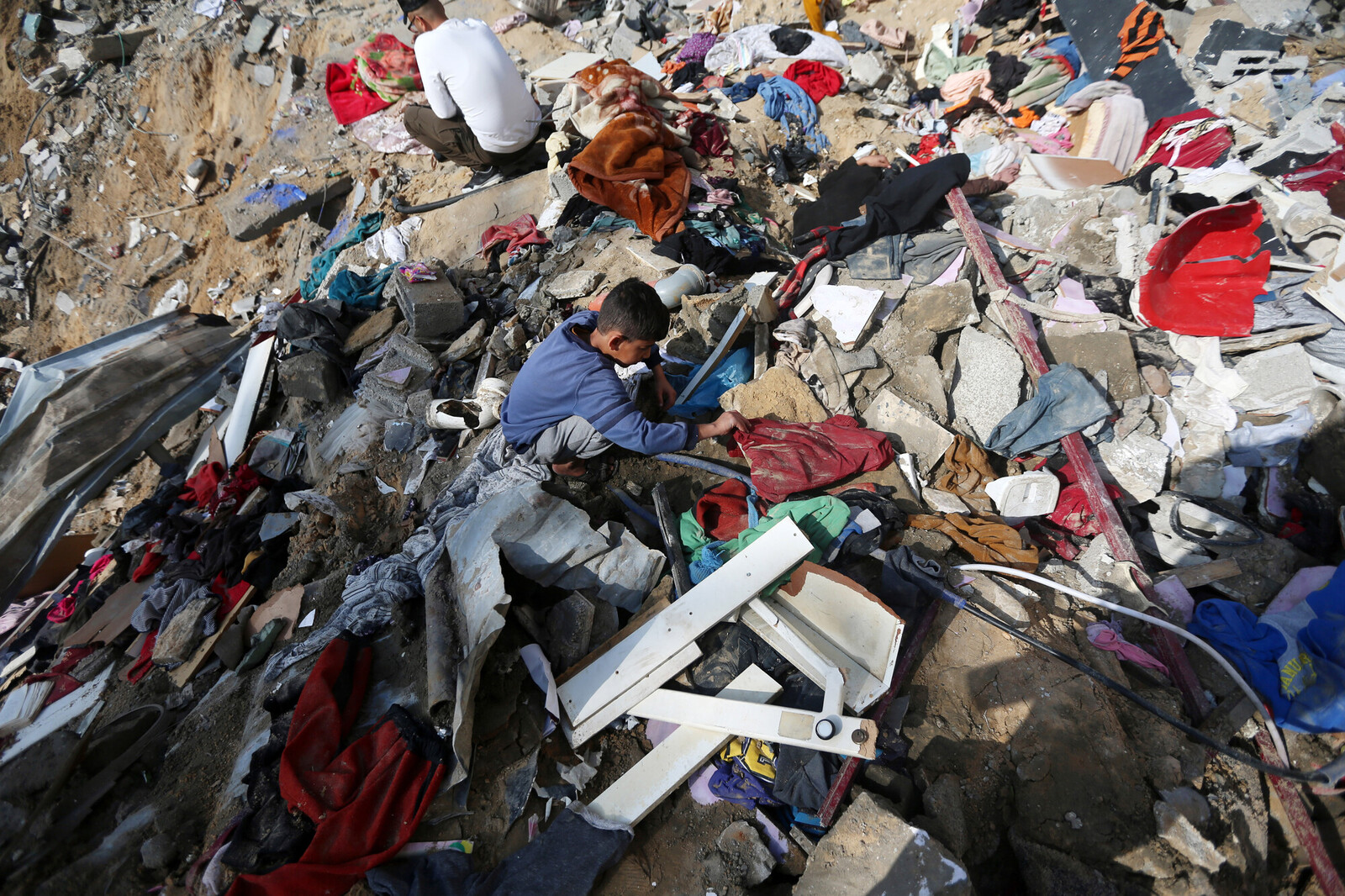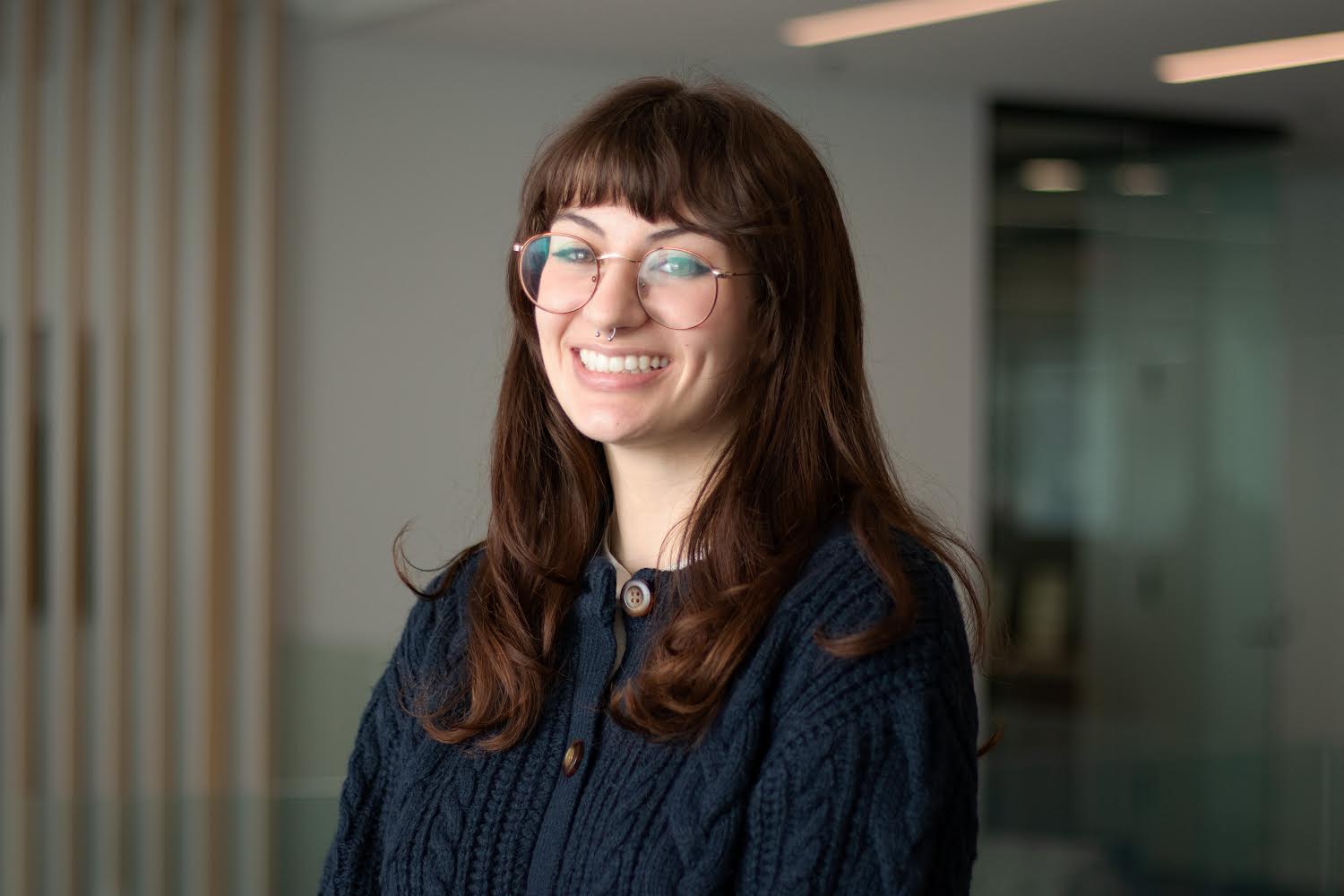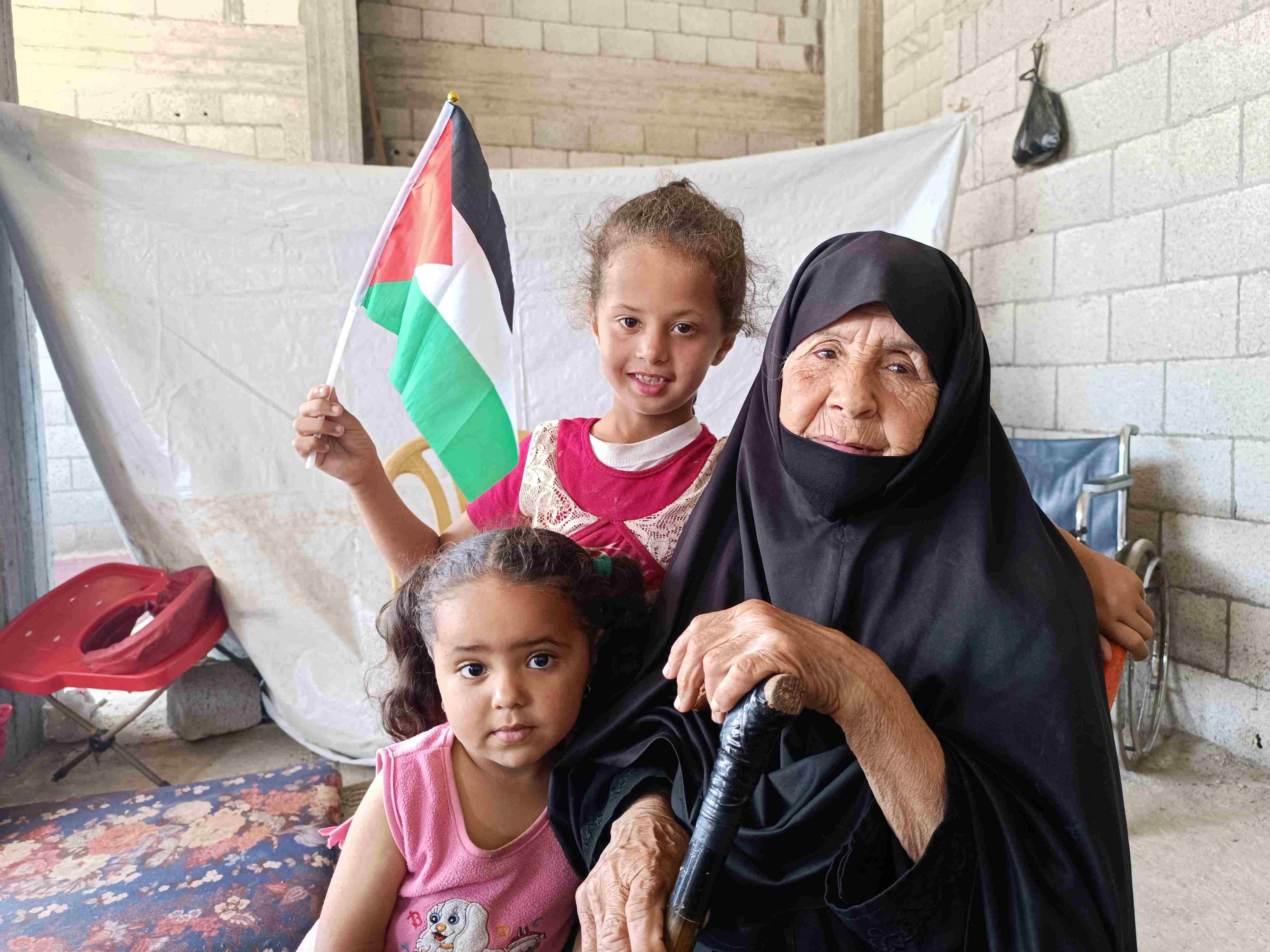
It has been nearly a year since Israel’s ongoing genocide in Gaza began, and starvation is now affecting every community. Famine is imminent in northern Gaza. Humanitarian aid entering Gaza is at an all-time low. As winter approaches, Palestinians in Gaza wonder how they will survive with barely any food or goods in the markets.
In the stories below, Palestinians of all ages recount how the brutal experience of displacement is compounded by the lack of food and water. These accounts are part of AFSC’s “Displaced in Gaza” series, which features dozens of personal testimonies from individuals who have been repeatedly displaced in their homeland since Oct. 7, 2023.
Visit Gaza Unlocked to read their full stories and learn more about their struggles and resilience in the face of unimaginable hardship.
3 days without food or water
Um Ayman Abu Bakra
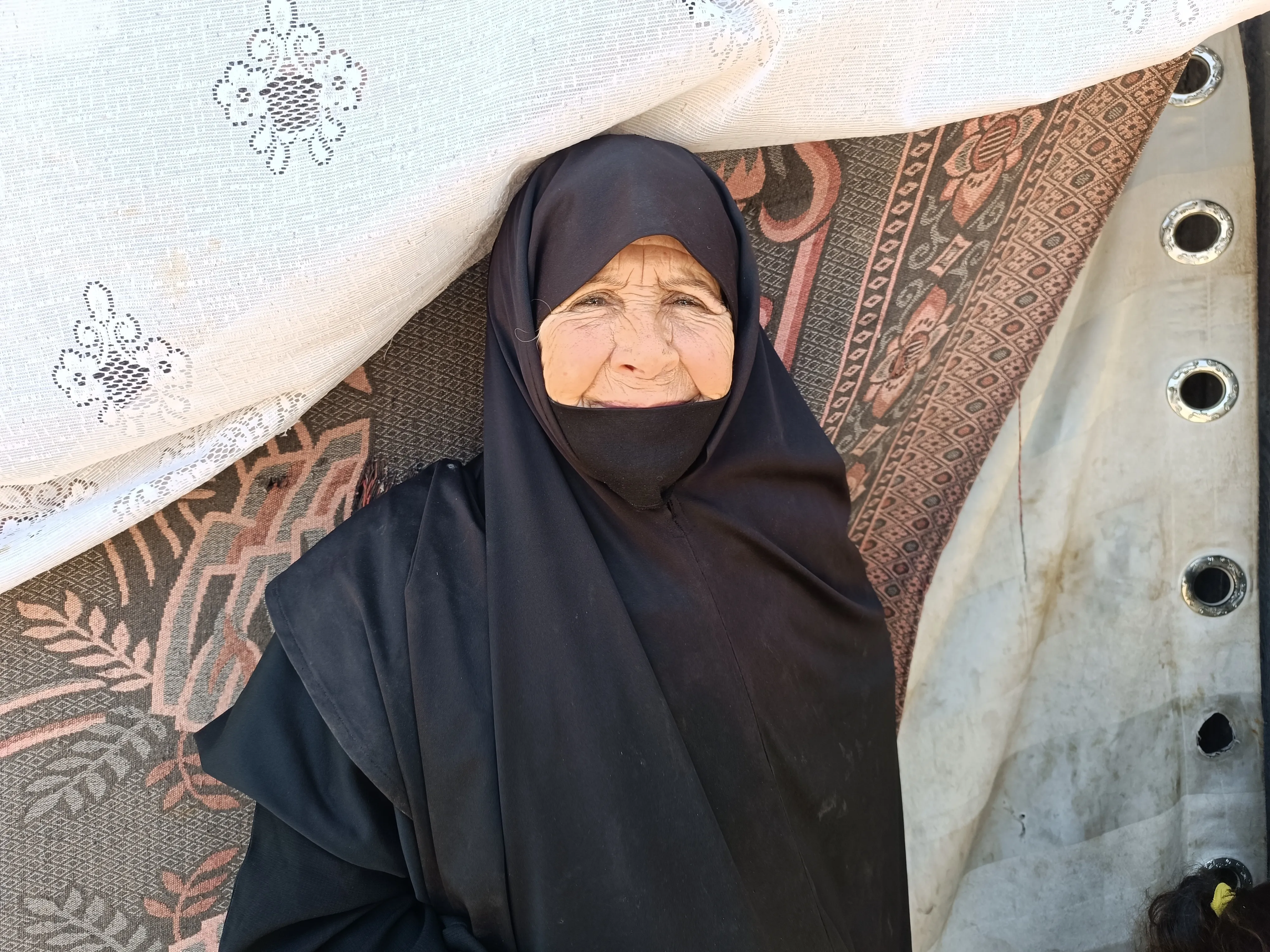
“We were among the first displaced people to return to Bureij camp. We found only a few residents. The shelling was intense everywhere. We spent three days without food or water. We had no money, and there were no markets, no sellers, and no institutions in Bureij camp from which to get food. We found nothing to eat.
The children cried a lot. We lived in this cramped place, unsuitable for living, with more than 20 other displaced people, mostly children and women. I used to go out with my children searching for food and water, but we couldn’t find any. Fear filled all our hearts, but we managed to stay alive. Everyone survived by drinking a little water. We got a little food on the fourth day after our return from Khan Younis.”
The need to obtain water is the greatest suffering we are exposed to
Nidaa Zaki Abu Toha
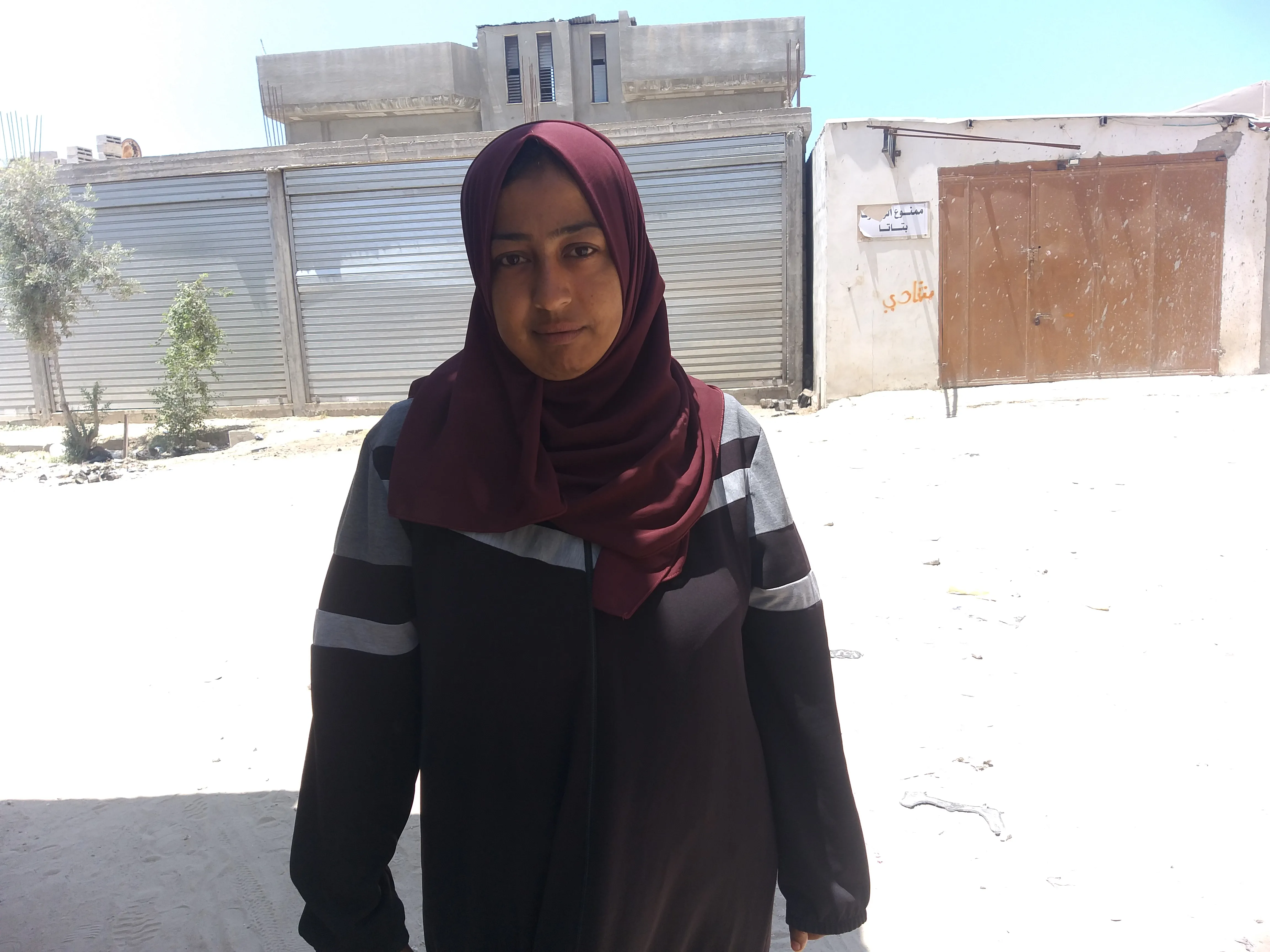
“There is no water in the shelters. All the water wells in the UNRWA schools and Palestinian government schools, which have become shelters for tens of thousands of displaced people, are not functioning. There is barely any fuel. The Rafah and Karim Abu Salem crossings, which were used to transport fuel to operate our water wells, are closed. The only operating well is in Khan Younis city, where I, displaced, now live. I go to the well every day to fill a 20-litre gallon of water. This is a daily challenge. I can handle hunger, but I need water to survive, maintain hygiene, and cook.
Under normal circumstances, my family’s daily water requirement is about 20 litres per person. Today, I share 20 litres of water among 23 family members. We make great efforts to conserve water, as we do not have our own bathroom. We live in a tent for the displaced, and we use a public bathroom, which lacks cleanliness and water, but we are forced to live this way. We face a continual threat of disease, with no way to combat it due to the water shortage.”
My husband was martyred while searching for food for us
Najlaa Al-Kafarna
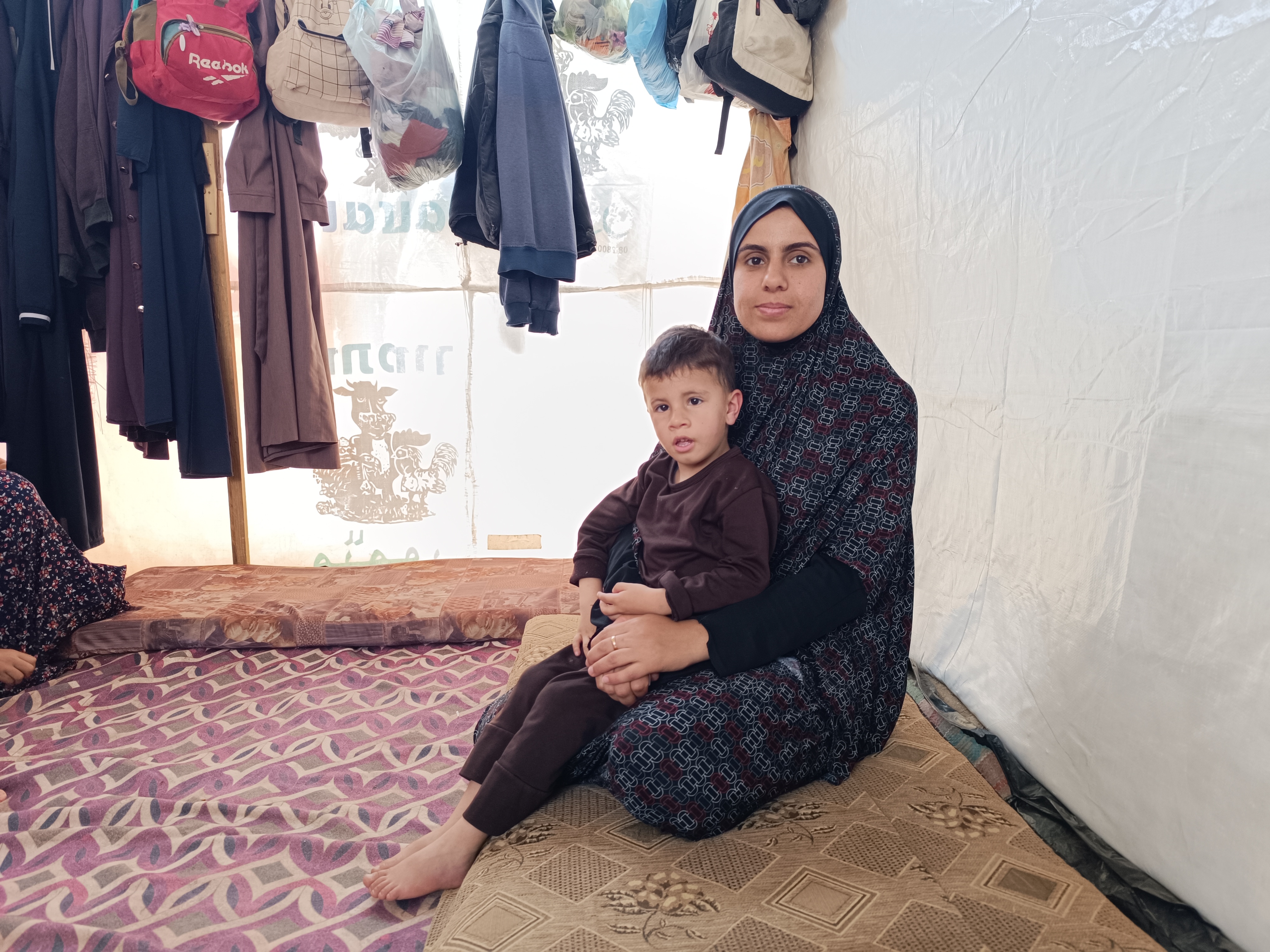
“We fled, surrounded by the occupation’s shells and missiles. We walked for over 10 kilometres [6.2 miles] until we reached Jabalia camp, where we spent our first day in the shelter without food. We slept on the floor without blankets. My husband went out on the second day after our arrival to search for food and drink for us. The Israeli shelling on Jabalia camp was very intense.
I asked my husband to take care of himself and to stay away from the shelling areas. He told me that he would go to Jabalia camp market to get some food. About an hour after my husband left, I heard the displaced people in the school talking about Israeli shelling on Jabalia market. I started to feel extreme fear, and my heart began to beat fast. I tried to call my husband repeatedly, but the network was busy. My brothers went out to search for him, and they returned in the evening with sad faces. I knew that the situation was serious, but I didn’t think that I had lost my husband.”
Caring for two orphaned children of Gaza
Aisha Osama Abu Ajwa
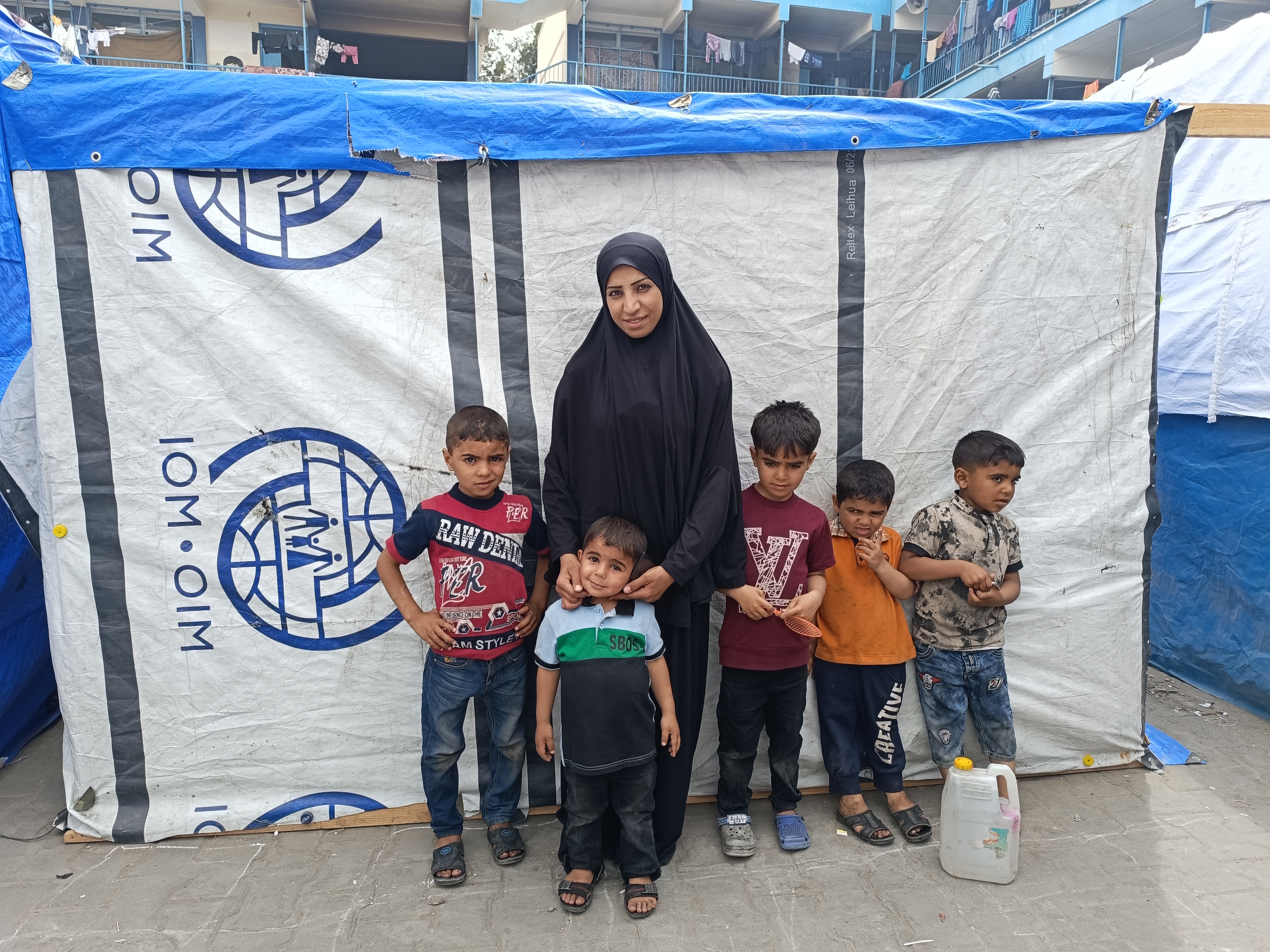
“The occupation forces asked me to walk on Salah al-Din Street towards the central and Southern areas of the Gaza Strip. We left our house after being besieged by the occupation forces for several hours. I walked with the six children on foot among the tanks, occupation vehicles, and soldiers, with the relentless shelling continuing for over 15 kilometers [9.3 miles].
We had no food or water, and fear gripped the children’s hearts in an indescribable manner. I screamed and cried, begging the soldiers to stop firing, but the shelling intensified. I walked with difficulty due to extreme fear. The children witnessed dozens of martyrs’ bodies strewn on the ground. They cried intensely, while blood covered the streets.”
